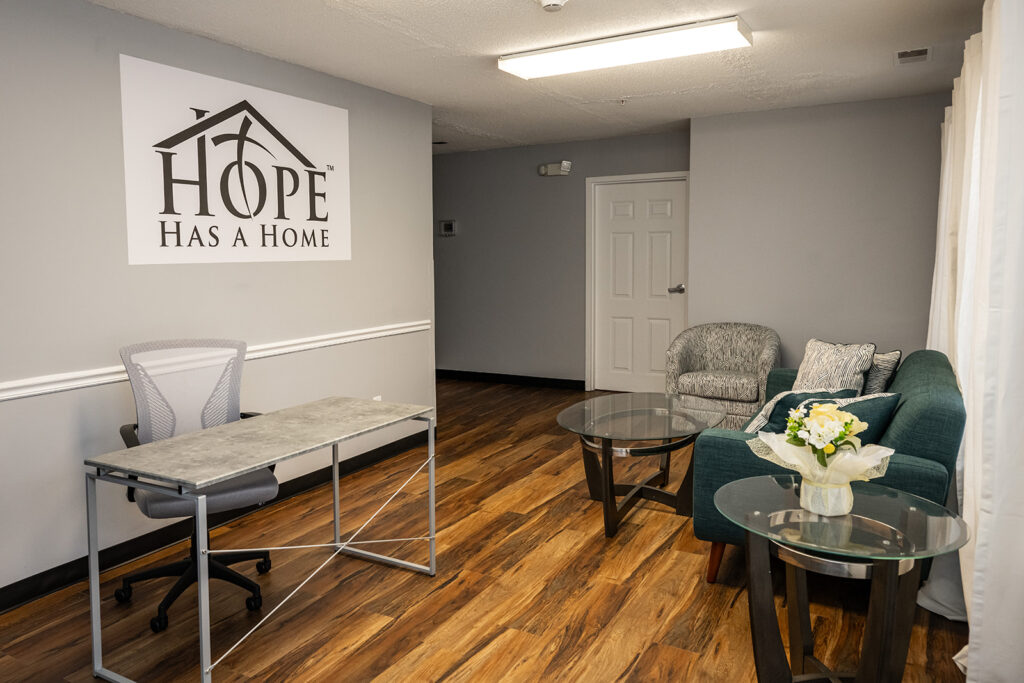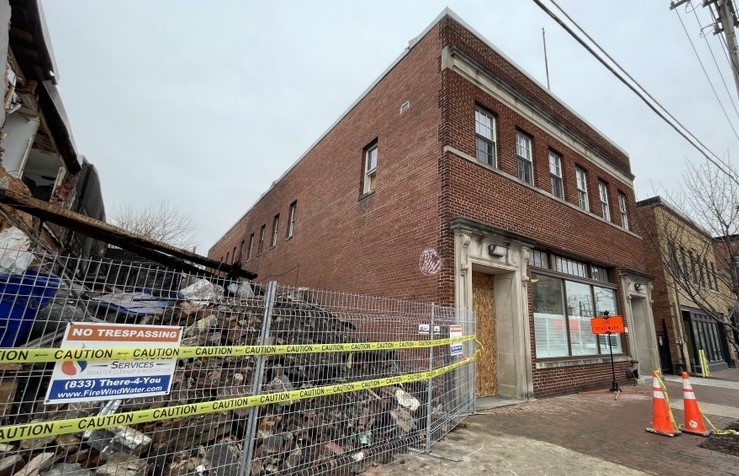I
n an effort to phase out its use of motels as overflow shelters for families experiencing homelessness, the District will end its relationship with Quality Inn and Suites New York Avenue this month.
Because there are more families experiencing homelessness than there are available spaces for families in city shelters, motels have long been used as overflow space to house these families. Family shelter space in the District is legally required to provide four walls and a locking door for the privacy and safety of children.
The D.C. Department of Human Services has been planning to reduce and eliminate reliance on this overflow contingency as more people are housed and more shelter capacity is built. DHS did not make anyone available to comment for this article despite multiple requests.
When the department responded to D.C. Council performance oversight questions in January, the agency wrote that it was only utilizing two overflow motels: Days Inn and Quality Inn. At that time, use of the Quality Inn for overflow shelter was planned to cease in the third quarter of fiscal year 2020, which ends Sept. 30. And use of rooms for shelter at the Days Inn was expected to end during the first quarter of fiscal year 2021. DHS noted that these dates may change due to any variance in the opening of the last two new family shelter facilities being constructed.
The first new family shelter opened in September 2018, and only two of seven remain under construction. Each shelters about 50 people, providing on-site service providers and amenities like computer labs and play spaces. Five of the new facilities were intended to replace the capacity of D.C. General, a converted hospital that was previously the District’s only family shelter, which was closed in 2018 before the new facilities could be completed. Construction delays and pushback from residents in some of the neighborhoods where shelters were to be constructed pushed back the plan’s timeline.

The council asked the same question about the timeline for ending use of motels as shelters in 2019, when DHS “anticipate[d] being able to close out of all Letters of Intent (LOIs) and all contracted hotels by the end of FY20.” The letters of intent refer to flexible agreements the department maintained with additional motels they intended to use if family homelessness increased beyond existing overflow capacity, to ensure there is sufficient space for families needing shelter.
For several years, the city has spent approximately $5 million per year per motel on its overflow shelter contracts, usually renewing option years of multiyear contracts with the same motels. The Day’s Inn contract was partially renewed for a fourth year in December. The Quality Inn and Suites contract was not. In February, an 11-month-old infant was killed at the Quality Inn.
Wes Heppler, a staff attorney at the Washington Legal Clinic for the Homeless, said the decision to end use of motels likely stemmed from a decrease in the number of overflow families in motel rooms from 300 a few months ago to 140. The District wants to move families into more permanent housing, the new family shelters, and rapid re-housing so they are less dependent on overflow sites, Heppler said.
The median length of stay for a family in overflow motels during fiscal year 2020 was 115 days, according to DHS’s performance oversight responses. The longest stay for a family who was in an overflow motel was 65 months, or 5.4 years. The median length of stay in the new short-term housing facilities was 71 days.

Jewel Stroman, a community advocate who ran for a Ward 7 ANC in 2018, said numerous motel residents have described instances where they did not receive proper services and were denied adequate protection. Stroman said she lived at the Days Inn when she experienced homelessness and the conditions were not safe for families. She has since been advocating on behalf of others for several years.
Last month, roughly 30 protesters joined Stroman in front of the Days Inn and demanded that DHS pull their contract with The Community Partnership for the Prevention of Homelessness (TCP), which manages the department’s contracts with homeless services providers, including the motels.
“Families have been complaining about a shortage of food, security officers here refusing to wear PPE gear like masks and gloves when they’re interacting with clients and residents.” Stroman said.
One of the speakers at the protest read statements they said were from people currently living in overflow shelter motel rooms. “There is no reason why we should be treated like prisoners,” she read to the crowd. “They treat us like we are nothing.”
The DC Ward 5 Community Care and Mutual Aid group has been providing supplemental food, adult- and kid-sized masks, and care packages to people living in the motels used for overflow housing.

In 2017, the Office of the Inspector General published a report that found that contracts with motels for overflow shelter space lacked oversight and put the District at a higher risk regarding liability. The report concluded that DHS’ contracts with hotels “assign unenforceable oversight responsibility” to TCP.
It is likely that motels will still be used to house families experiencing homelessness due to a rise in homelessness caused by COVID-19, said Melanie Hatter, communications coordinator for the Homeless Children’s Playtime Project. Homelessness in the United States may increase by as much as 45% this year, according to a new study from Columbia University economics professor Brendan O’Flaherty.
“With the unemployment figures and likelihood of rising eviction notices due to COVID-19, we anticipate the number of families experiencing homelessness to rise,” Hatter said. “We have had long-standing concerns about the lack of comprehensive case management in the hotel contracts and are eager to know what children’s services will look like in the new shelters.”
Homeless Children’s Playtime Project currently provides play programming at the Days Inn, along with several transitional housing sites. However, because the organization is restricted by COVID-19, it has been sending “Playtime to Go” kits instead of hosting a pop-up play space.
“We have always been concerned that the city’s shelters do not provide adequate services for children,” Hatter said. Playtime has proposed that the city install “Children’s Services Coordinators” in the motels and every short-term family housing site across the District so that children’s issues are directly addressed, according to Hatter. The nonprofit has not been able to operate in all of the new shelters due to space constraints.
[Read more: With DC General closed, this organization is bringing playtime to children in overflow family shelters]
The majority of families moving from the motel overflow spaces have likely been moved into rapid rehousing, according to Heppler. Rapid rehousing involves placing families in market-rate rental units, with DHS subsidizing the rent for 18 months or less. After that time, families are responsible for market rent. Critics say the program is very effective for some people but used too much like a one-size-fits-all solution in the District. For those that need many supportive services to attain an income that affords rent in DC, a 2017 report by the Legal Clinic says the program leaves them “set up to fail” and re-entering the homeless services system worse off than they were before, such as with an eviction record.
“Most of the families put into the rapid rehousing program have no way of paying marketplace rent once the 12 months have ended, so we do not really view rapid rehousing as permanent housing,” Heppler said.
According to DHS’s responses to the D.C. Council oversight questions, the department is working to improve the program. The department’s goal of addressing identified barriers and enhancing the rapid rehousing program was listed as “50-74% complete.” They are in the process of “developing program enhancements and adjusting the program model to better fit the needs of current and future program participants.”
Due to the pandemic, landlords have not been allowed to evict tenants, and those in rapid rehousing were given an extension of their rental subsidy. As a result, the number of families needing shelter is likely to significantly increase in the fall when these restrictions go away, Heppler said. He worried that it may be difficult to house these families if the Days Inn is the only motel still available.
Heppler said there have been complaints from the people the Legal Clinic represents about the uncertainty of where they will be housed now.
“Whenever a family gets moved, there is uncertainty and a lot of anxiety. The bigger concerns will be when there is nowhere to move them to,” Heppler said. “Even if they are moved into short term family housing in shelters, there is still uncertainty of where they will be moved next.”
Matthew Gannon contributed reporting.







